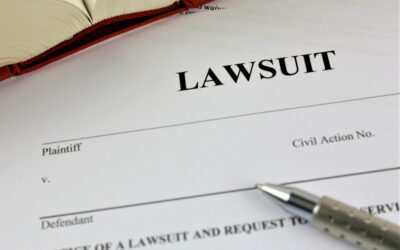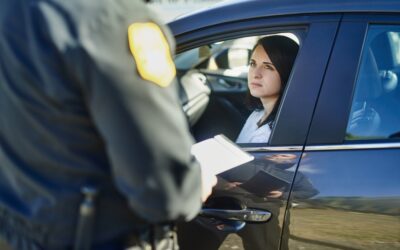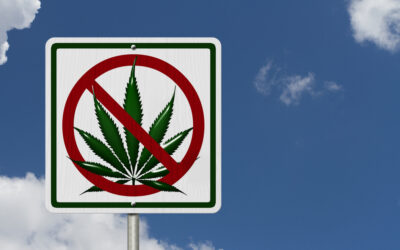California has specific penalties for bicycling under the influence, and they are very different from the penalties for driving a car under the influence. The rules around cycling under the influence (CUI) are given under California Vehicle Code Section 21200.5. These rules state that:
- It is illegal to cycle on a public “highway” under the influence of alcohol or drugs
- If you do so, you could face a fine of up to $250
The use of the word highway in this context means any public road that’s open for vehicle traffic. It does not apply to bike trails or private land.
The true consequences of a CUI charge are much worse than a $250 fine, however. If you are convicted you will have a misdemeanor criminal offense on your record, and it’s an alcohol-related offense. This is something you have to disclose on most job applications and college applications. This makes every CUI a serious matter that can follow you for years.
What circumstances typically lead to CUI?
Some CUI cases involve a person who was clearly drunk and bicycling in an intoxicated manner, often yelling or harassing pedestrians. But these are not the most common CUI cases we see.
Often, the charge of CUI is much less clear, as are the officer’s reasons for stopping you. Every cyclist knows that people have strong feelings about cyclists and their use of the roads. Some people become irrationally angry when they see a cyclist in the lane with other vehicles, even though that is where cyclists are legally supposed to be. Others become angry if they see a cyclist use a sidewalk, go the wrong way on a one-way street, or roll through a stop sign—even if those are the safest actions for that cyclist under the circumstances.
Police officers can have prejudices just like anyone else. Some officers may look for an excuse to pull over a cyclist. Or, they may use CUI as a way to make a minor infraction more serious. For example, if they observed you going the wrong way on a road with little traffic, they may claim this is a sign of “erratic” cycling and that they suspected intoxication.
Generally, any cyclist who is not obeying the rules of the road could not only be pulled over, but also suspected of CUI. This is why it’s so important to fight your CUI charge.
How do I fight a charge of cycling under the influence?
If the officer did not have a good reason to stop you in the first place, you may be able to get the entire charge dismissed. The best way to do this is to talk to a DUI lawyer about your case.
Even if the case goes forward, however, you can still fight it. Regardless of what the officer believes happened, a prosecutor must prove that your behavior counts as CUI. This requires that you were:
- Riding a bicycle,
- While under the influence of alcohol or drugs, and
- On a highway
Each of these facts can be challenged to fight a CUI offense.
“Bicycles” in this case are entirely propelled by your own body power. There are separate laws governing mopeds and motorized scooters. The term bicycle does include other self-propelled cycles, however, such as a unicycle, tricycle, or a bicycle with a trailer.
“Under the influence” is also more vague in this law than it is in other DUI laws. California’s CUI law does not list any specific blood alcohol limit, like the .08% limit used in car DUI cases. Instead, whether you are charged with this offense is largely up to the officer’s discretion. They will base their decision on:
- Are you currently drinking, or did you admit to drinking?
- Do you smell like alcohol?
- Were you cycling in an erratic or unstable fashion?
- Are there visual signs of intoxication, such as a flushed face?
The problem with these subjective judgements is they don’t really prove intoxication. Your face could be flushed because you were cycling hard or because you’re sunburned. You may bike erratically because of an injury. And even if you admit you were drinking, it doesn’t mean you were intoxicated.
Last, your behavior was only illegal if it you were on a public street or thoroughfare (a “highway”). You cannot be convicted of CUI if you were on a driveway because that’s private property. You can’t be convicted on a grassy area because it’s not open to traffic. Even parking lots are privately maintained in most cases. Unless you were actually in the street, you may be able to defeat your CUI.
Other Cycling Charges and Penalties
In addition to the basic CUI charge itself, you may also be charged with public drunkenness, which can carry up to 6 months in jail and a fine of up to $1,000; or failing to ride a properly equipped bicycle. This charge includes violations such as:
- Bicycle has no brakes or the brakes don’t work well
- Bicycle is the wrong size for the rider
- Handlebars are too high
- Not using a light and reflectors (applies after dark only)
This means that anyone riding a “freak bike” such as a tall bike can be potentially charged with improper equipment. The same is true for anyone with “ape hanger” handlebars. Even fixie bikes are sometimes charged because they don’t have mechanical brakes of their own, although the rider can still brake by back-pedaling.
Last, if you are under 21, getting a CUI could be far more serious, which can include losing your driver’s license for a year or delaying getting your license for a year.
You Can Win Your Cycling Under the Influence Case
Have you been charged with DUI? We can connect you with an experienced Los Angeles DUI lawyer and get you a FREE consultation. Fill out the form to the right or call (310) 896-2724 and get your free consultation today.







